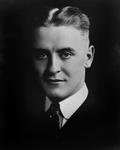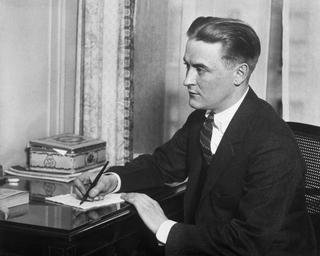
1. “You must begin by making notes. You may have to make notes for years.... When you think of something, when you recall something, put it where it belongs. Put it down when you think of it. You may never recapture it quite as vividly the second time.”
2. “Invent a system Zolaesque...but buy a file. On the first page of the file put down an outline of a novel of your times enormous in scale (don't worry, it will contract by itself) and work on the plan for two months. Take the central point of the file as your big climax and follow your plan backward and forward from that for another three months. Then draw up something as complicated as a continuity from what you have and set yourself a schedule.”
3. “Begin with an individual, and before you know it you find that you have created a type; begin with a type, and you find that you have created--nothing.”
4. “I think it's a pretty good rule not to tell what a thing is about until it's finished. If you do you always seem to lose some of it. It never quite belongs to you so much again.”
5. “About Adjectives: all fine prose is based on the verbs carrying the sentences. They make sentences move.”
6. “You ought never to use an unfamiliar word unless you've had to search for it to express a delicate shade--where in effect you have recreated it.”
7. “Nobody ever became a writer just by wanting to be one. If you have anything to say, anything you feel nobody has ever said before, you have got to feel it so desperately that you will find some way to say it that nobody has ever found before, so that the thing you have to say and the way of saying it blend as one matter—as indissolubly as if they were conceived together.”
8. “You’ve got to sell your heart, your strongest reactions, not the little minor things that only touch you lightly, the little experiences that you might tell at dinner. This is especially true when you begin to write, when you have not yet developed the tricks of interesting people on paper, when you have none of the technique which it takes time to learn. When, in short, you have only your emotions to sell.”
9. “I might say that the writing is smooth and agreeable and some of the pages very apt and charming. You have talent — which is the equivalent of a soldier having the right physical qualifications for entering West Point.”
10. “Nothing any good isn’t hard.”
F. Scott Fitzgerald
Francis Scott Key Fitzgerald was born September 24, 1896, Saint Paul, MN, and died December 21, 1940, Hollywood, Los Angeles, CA. Fitzgerald was an American writer, best known for, The Great Gatsby, This Side of Paradise, Tender is the Night, The Beautiful and Damned, and many more. He authored four collections of short stories. Published 164 short stories in magazines during his lifetime, and regarded as one of the great American writers and a giant in literature.

“Genius is the ability to put into effect what is on your mind.” F. Scott Fitzgerald
Follow. Up-Vote. Resteem.
@smackit

Image Source:
http://ebooks.adelaide.edu.au/f/fitzgerald/f_scott/portrait.jpg
Image Source:
Image Source:
Thanks for this interesting post and the info on Fitzgerald. Enjoyed your writing and I appreciate the fact that you give your image sources.
Fitzgerald sounds like his processes would take all the fun out of writing. Way too technical for fiction. How can you be creative writing like that?
Well, different things work for different people. I guess that worked for him. I just don't understand how.